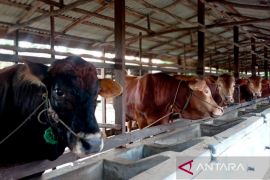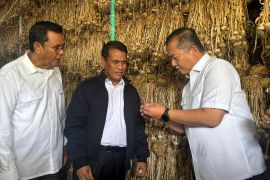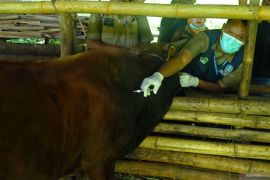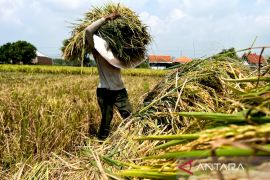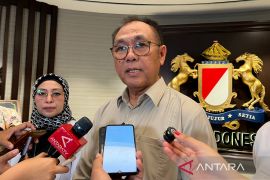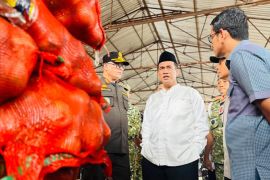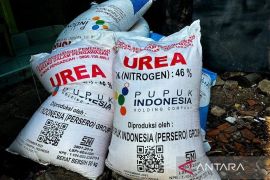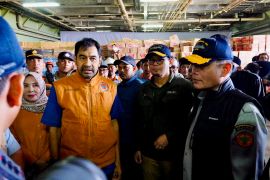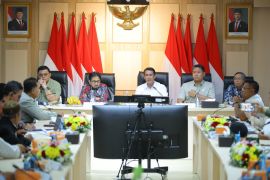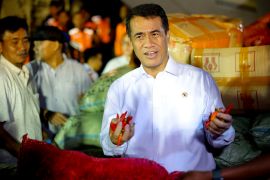He said there are no holidays as the government is focused on accelerating food self-sufficiency as part of efforts to strengthen national resilience.
Speaking at the inauguration of the Hasanuddin University Alumni Association Board for the 2025–2029 period in Makassar, he explained that President Prabowo Subianto has instructed that the timeline for achieving food self-sufficiency be shortened from four years to three, and eventually to just one year.
He described the increasingly tight target as both a challenge and an opportunity to prove the capacity of Indonesia’s agricultural sector.
Amran said Indonesia is on the right track toward self-sufficiency, supported by rising food production recorded by various international institutions.
He noted that agriculture ministers from several developed countries have begun paying close attention to Indonesia’s progress.
Recent visits by Japan’s agriculture minister and officials from other countries, he added, reflect global interest in Indonesia’s strategies for boosting national food production.
According to Amran, this international confidence stems from concrete results rather than rhetoric.
He said he regularly tests the discipline and performance of his teams in the field to ensure targets can be achieved. Without verifiable data, he stressed, it would be impossible to convince anyone.
Latest data from Statistics Indonesia show that rice production from January to December 2025 is projected to reach 34.77 million tons, an increase of 4.14 million tons or 13.54 percent compared with the same period in 2024, which stood at around 30 million tons.
The Food and Agriculture Organization has also assessed that Indonesia has the potential to become the world’s second-largest food producer after Brazil.
Meanwhile, the United States Department of Agriculture has predicted an increase in Indonesia’s rice output even before the planting season begins.
Addressing Hasanuddin University alumni, Amran called on them to play a strategic role in national development. He emphasized that Unhas graduates have strong capacity to become drivers of change and to shape the next generation of leaders.
He said agriculture represents the future of Indonesia, and all stakeholders share a collective responsibility to help realize that vision.
Related news: Gov't cuts fertilizer prices by 20% to boost farmers' productivity
Related news: Prabowo prioritizes food security in first-year agenda
Related news: National Food Agency boosts local B2SA foods to reduce stunting
Translator: Muhammad Harianto, Primayanti
Editor: Azis Kurmala
Copyright © ANTARA 2025

